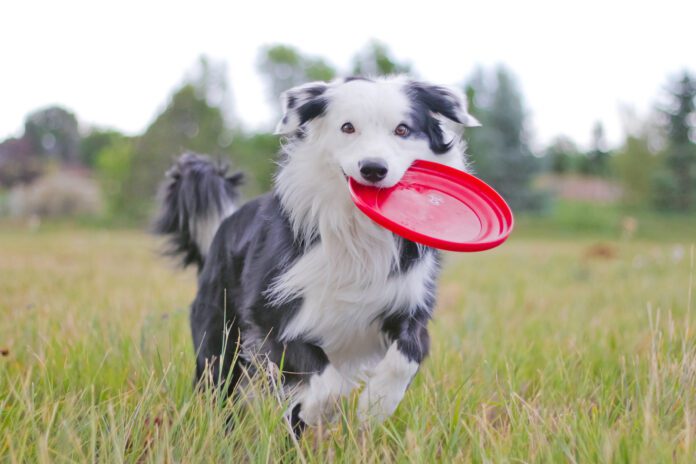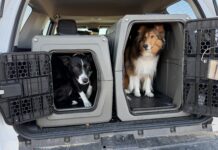Chase games are a fun way to play with your dog and take the edge off those high-energy adolescents! Add in some training and mental exercise, and you will have your dog snoozing in no time. Remote-controlled toys can add a level of excitement, if the toy is sturdy enough for your dog.
Best Dog Chasing Toys
Balls and flying discs are the crowd favorites that we all think of when choosing toys for our dogs. The best toy for your dog to chase is:
- Safe
- Durable
- Floats (if using in or near water)
- Attractive to your dog
Dog chase toys should be made of materials that are safe for dogs, especially if your pup is a chewer. Avoid hard, brittle plastic that could cut your dog’s gums or shatter when chomped on, and avoid thin, flimsy plastic that will break or tear easily.
Soft toys can be used for games of fetch too! Choose one that is the right size for your dog and throw it out when your dog starts to tear it up.
Balls should be safe. They should be large enough so the dog cannot accidentally try to swallow them, and they are best if they allow your dog to breathe through them. We like the Chuckit! Air Fetch Ball. Chuckit also makes a great flying disc that is soft and easy for your dog to grab.
Check out the balls from Planet Dog and flying discs and other toss-able toys from West Paw.
Remote-Control Dog Chase Toy
Some fun remote-control toys out there are now designed specifically for dogs. As with any dog toy, be sure the toy you purchase is sturdy enough for your dog’s play style. Always supervise your dog when she has access to remote controlled toys, as chewing on batteries or other electronic parts can be very dangerous.
Flirt Poles
Flirt poles aren’t just for cats! Dog flirt poles are larger and sturdier and have a ball or tug toy on the end instead of feathers or catnip mice.
These toys are fun because you control how fast and where the toy goes. Flirt poles are also a great option for dogs who tend to play keep-away instead of retrieving, as you are always connected to the toy.
Keeping Play Safe
Chase games are fun for both us and our dogs, but they can also lead to injuries. This is especially true for puppies and intense dogs who get extremely wound up when playing fetch.
Keep play fun and reduce risk of injuries by following these suggestions:
- Play in an area with good footing, such as grass or packed dirt, so your dog doesn’t slip.
- Make the first sessions short, even just a few minutes at a time at first, gradually increasing as your dog builds stamina.
- Avoid hills and slopes, especially if the ground is wet.
- For dogs who scramble and dive, hold onto the collar and don’t release until the toy has stopped moving. This eliminates the “panic” part of chasing and will reduce strain on your dog’s joints.
- Quit before your dog slows down. Continuing to play until fatigued makes your dog much more susceptible to injury.
- Roll balls instead of throwing to get a straighter toss without any risk of crazy bouncing.
- Throw discs long and long to reduce jumping.
Tiring Your Dog Out
High-energy dogs can be difficult to tire out. Hours and hours of physical exercise start to just increase their stamina, plus may not fit into your daily schedule.
Add mental exercise to your dog’s playtime! Working his brain will wear him out much faster than physical exercise. You can do this in many ways:
- Hide your dog’s toy for him to sniff and find himself.
- Ask your dog to do tricks before each toss of the toy.
- Use the chase toy as a reward during training sessions. Practice a new behavior, and then throw the toy for a job well done.






